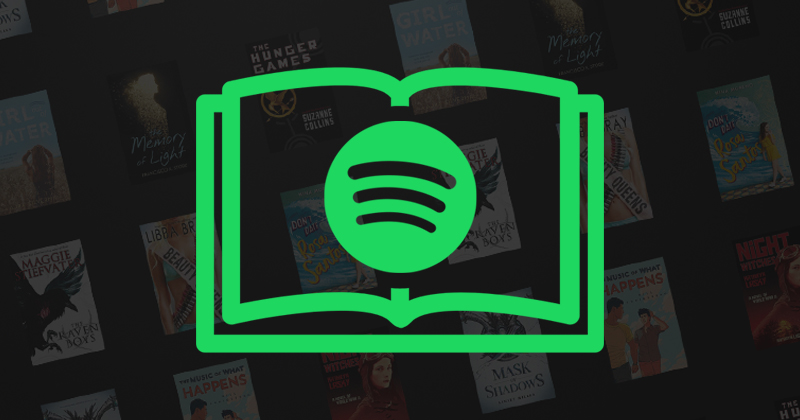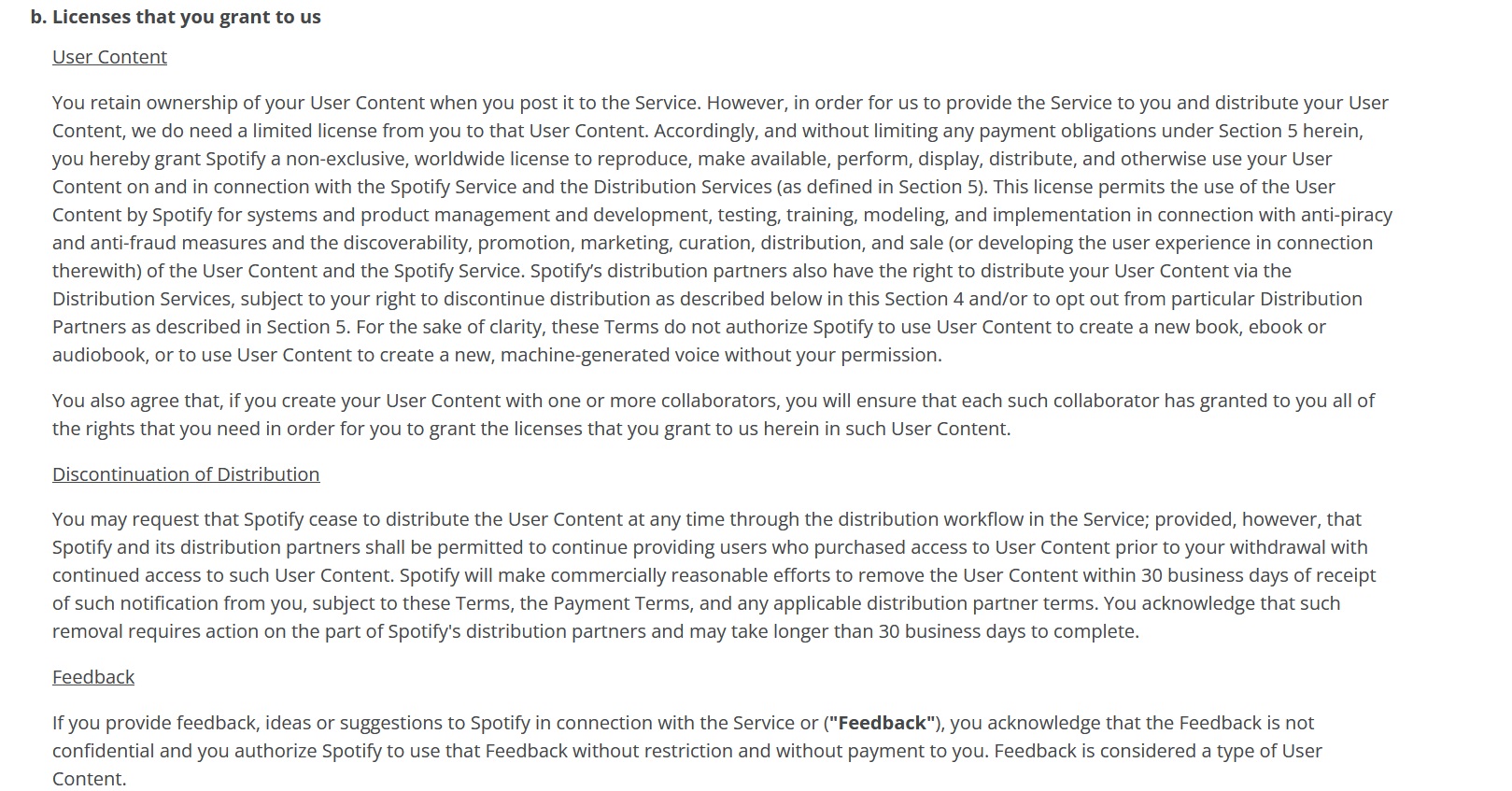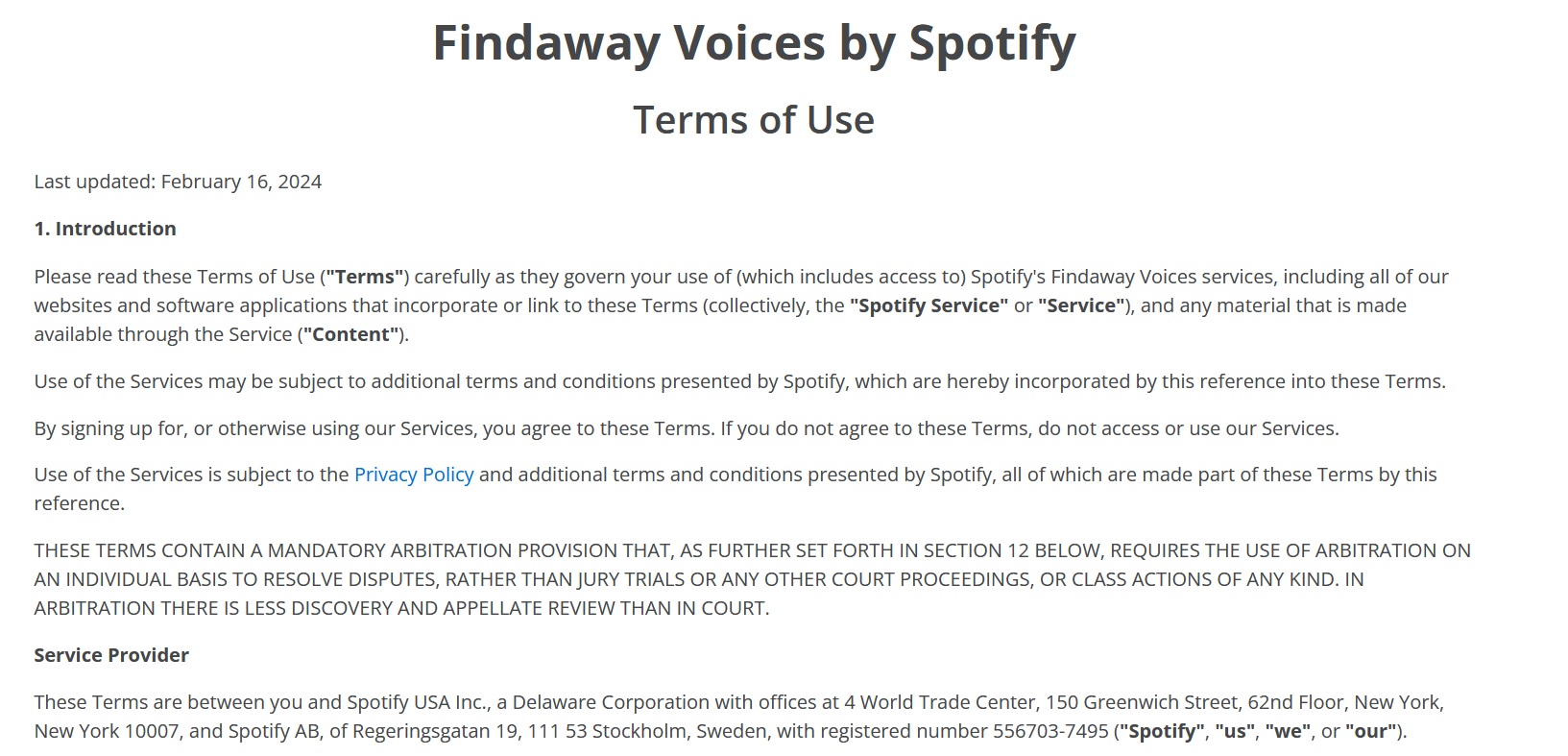What Do Spotify's New Audiobook Terms Mean?
You've probably heard a lot recently about audiobooks on Spotify. There was an update to Spotify's terms of use, which led to concerns for narrators and authors about how their voices and work could potentially be manipulated. In this piece, we are going to dive into Spotify and Findaway audiobooks and look at what these new terms of use really mean. We also have some narrator best practices for people to follow on audio platforms.

Audiobooks on Spotify
Spotify got into the audiobook game relatively recently, and a couple of years ago, they acquired Findaway Voices. This is the service they now use for audiobook creation. Audiobooks on Spotify are widely available to premium subscribers, who can listen to them for up to 15 hours a month without paying extra. It seems that although Spotify was originally used for music and then became associated with podcasts, we're going to be seeing a lot more audiobooks on the service going forward. Audiobooks have generally become more popular, with narration changing the way we consume content.
Spotify and Findaway Audiobook Terms of Use
On February 16th, Spotify and its subsidiary Findaway updated their terms of use, with a particularly big change relating to audiobooks and narration.
What the New Terms Say
Here is the exact wording of the updated Terms of Use:

Also, for your information, here is the introduction to the contract:

What Does This Mean?
Contracts always contain legal jargon, so let's put each section into simple terms.
Let's start with the User Content piece:

So, first off, the publisher of the content (in this case, the author, narrator, or literary agent) does not forfeit ownership of their audiobook when they put it on Spotify. Spotify does, however, have some rights in terms of using your content on the service.

In terms of feedback, this section is simply saying that if you were to offer an idea to Spotify as a suggested improvement or new innovation, they wouldn't need your permission to use the said idea, nor would they have to pay you for it.

Finally, you are allowed to withdraw your content from Spotify, and they will make a reasonable effort to ensure it isn't used by any of their partners.
Concerns Over the Terms
When these new terms were announced, there were a lot of concerns regarding how user content could potentially be manipulated. Artificial intelligence has become a big new thing over the past few years, and there are concerns about how AI will be used in the literary world. Some were afraid that Spotify or its partners (or any other service, for that matter) could use AI to copy a narrator's voice or create new works based on user content.
On top of this, some authors were worried they would use intellectual property rights in their work. Could someone else really make a series based on your audiobook without your permission?
As we said earlier, contracts have to cover everything, and so contain complicated legal language, but often the reality isn't as scary as it looks on the page.
Findaway Provides Clarity
Findaway heard the concerns over audiobooks on Spotify and was quick to clarify some of them. They cleared up the new Spotify terms of use and addressed the concerns of narrators and authors who use Findaway for audiobooks.
To summarize what Findaway had to say:
- They cannot create and sell derivatives of user content.
- They do not have the right to sell audiobooks without paying royalties to the owners, and the peer who owns the rights will still be paid.
- They do not have the right to create an AI voice from the audiobook without your permission.
- The terms were updated to help promote and market audiobooks.
- The terms were also updated to try to prevent fraud and stop people from abusing the platform.
- You can pull your audiobook from Spotify at any time.
You can read the full article here.

Spotify or ACX?
So, is Spotify the best way to go if you are publishing an audiobook? It seems as though some of the fears around the new Spotify terms of use were mislaid, but it isn't the only option.
ACX stands for Audio Creation Exchange. The ACX portal belongs to Amazon, and Audible is a part of Amazon. Audible was into audiobooks before Spotify. You can use the ACX portal to actually make your audiobook and hire one of their narrators. To do this, you have to negotiate payments regarding royalties and up-front fees. But you can also upload audio files that have already been made. Basically, if you have already narrated the audiobook, you can just upload the finished file.
ACX has a wide reach, with its content available on iTunes, Amazon, and Audible. Creators have two options with their content: They can make their audiobooks exclusive to these platforms or non-exclusive. If you pick exclusive, you get a larger payment in royalties and favorable treatment from the algorithm, but you can't publish your audiobook on other services. If you go non-exclusive, the royalty payment is smaller, but you are free to publish your audiobook anywhere else.
Spotify appears to offer more royalties to audiobook creators, with creators getting 100% of the audiobooks from Spotify sales and 80% of the royalties from sales elsewhere.
It's worth looking into ACX as another option for Spotify and Findaway audiobook publishing. The new Spotify terms of use spooked a few people, but it appears they do not impact the rights to the content.
All in all, it's probably best not to rely solely on a single platform for distribution.
Future Concerns for Narrators
These Spotify terms of use relating to Findaway audiobooks have raised some questions about the future of narration.
Artificial intelligence is not the big bad wolf and can generally be very helpful. In fact, here at Dibbly | The Urban Writers | we have Dibbly Create and KIP, which expertly blend human creativity and AI to help authors research, plan, and create a masterpiece. And human creativity and AI can and should work together and complement each other.
But what about people who abuse AI? There are concerns for narrators and podcasters that AI could be used to manipulate real voices, leading to scams and misrepresentation. This is something that audio platforms such as Spotify and Audible will have to address going forward.
Narrator Best Practices
Here are six best practices for the narrator to keep in mind.
- Be wary of scams in the self-publishing world. When you don't have a literary agent to back you up, you can get ripped off.
- Spread your content out over numerous platforms so you don't become overly reliant on a single one.
- Consider selling directly from an author's website. Your own website is a valuable tool anyway because it allows you to have ownership over your communities.
- Always read contracts and terms of use thoroughly before signing them.
- Keep original copies of your recordings.
- Establish ownership of your audiobooks.
Final Thoughts
When it comes to audiobooks on Spotify, it seems as though it's their next big investment, and it's already underway. While the now-Spotify terms of use caused concerns for narrators and creators, it seems that, for now, things have been cleared up. However, for authors and narrators, the best practices are definitely not to rely too heavily on a single platform for distribution and to thoroughly research and read up on terms of use before publishing content. And if you need a narrator, you should start here at Dibbly | The Urban Writers.










